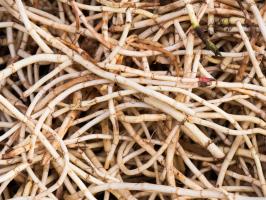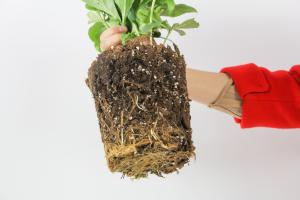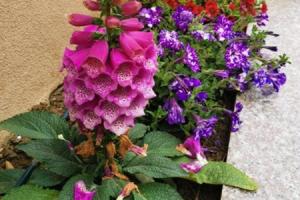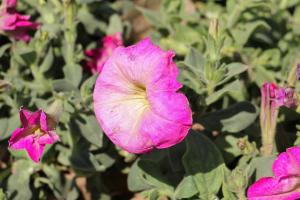Introduction
Pot plants, or houseplants, are a common addition to many homes and offices. They not only add aesthetic value but also provide health benefits such as cleaner air. However, with the benefits come potential risks as some animals may find these plants quite appealing as a food source. In this article, we will explore the different animals that eat pot plants and how to prevent them from doing so.
Rabbits
Rabbits are known to be herbivores and primarily feed on grass, weeds, and vegetables. Unfortunately, houseplants are also a favorite snack for these furry creatures. Rabbits can chew on stems, leaves, and flowers, leading to plant damage or even death. To prevent rabbits from eating your pot plants, consider placing a wire mesh around the plants. Alternatively, use natural repellents such as garlic or vinegar sprays to discourage these animals from coming close to your houseplants.
Deer
Deer are another group of herbivores that can cause harm to your houseplants. These animals typically feed on leaves and stems, and in severe cases, can even pull up the entire plant from the ground. To protect your pot plants from deer, use physical barriers such as fences or nets. Also, consider spraying a deer repellent around the plants to deter them from coming close.
Slugs and Snails
Slugs and snails are not typically thought of as pests that eat houseplants. However, these gastropods have a keen taste for fresh leaves and flowers, especially when the plants are young. They can cause significant damage to your pot plants, leading to stunted growth or death. To prevent slugs and snails from eating your houseplants, consider removing any potential hiding spots, such as piles of leaves or debris. You can also use slug pellets or copper tape around the plants to deter these animals from making contact.
Spider Mites
Spider mites are not actually insects but are instead arachnids. They are tiny and difficult to see, making them hard to detect. Spider mites feed on the sap of plants and can cause significant damage to your pot plants, leading to yellowing leaves and stunted growth. To prevent spider mites from infesting your houseplants, keep the plants well-watered and avoid exposing them to direct sunlight. You can also try using neem oil or a natural insecticidal soap to control an existing spider mite infestation.
Conclusion
Overall, there are various animals that can pose a threat to your pot plants. From herbivores such as rabbits and deer to slugs, snails, and spider mites, it is important to take preventive measures to protect your houseplants from harm. Using physical barriers, natural repellents, and keeping the plants healthy can go a long way in keeping these animals at bay. With the right care and attention, you can enjoy the benefits of houseplants without worrying about them being eaten by wildlife.

 how many times do yo...
how many times do yo... how many planted tre...
how many planted tre... how many pine trees ...
how many pine trees ... how many pecan trees...
how many pecan trees... how many plants comp...
how many plants comp... how many plants can ...
how many plants can ... how many plants and ...
how many plants and ... how many pepper plan...
how many pepper plan...

































